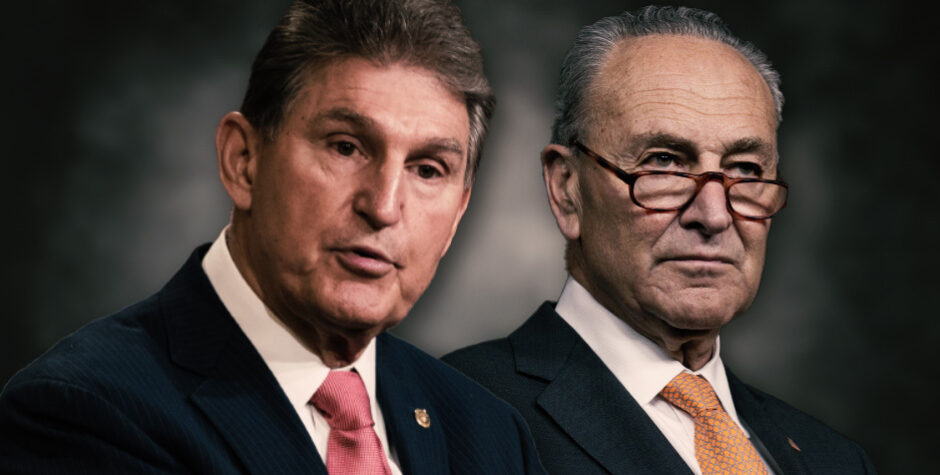Sen. Manchin, S. 1 by Any Other Name Is Still Unconstitutional
As we’ve discussed and written previously, the majorities in the U.S. House and U.S. Senate are currently attempting to federalize control of elections in the United States. This painfully unconstitutional effort comes in the form of the not-so-aptly-named “For the People Act” (H.R. 1 in the U.S. House and S.1 in the U.S. Senate).
H.R. 1/S. 1 is nearly 900 pages long and would rob states of the authority to control nearly every aspect of the election process. Everything from drawing congressional district lines to when and how voters are registered to whether and how voters can vote early or by mail would be under the control of the federal government if this legislation were to become law. Even voter ID laws would fall under the jurisdiction of the feds under the sweeping terms of H.R. 1/S. 1.
To add insult to injury, this legislation would also repeal the Lois Lerner Rule, which was enacted in 2018 to stop the IRS from targeting conservatives because of their political or religious views.
Our own Senior Counsel for Global Affairs (and former Secretary of State) Mike Pompeo has astutely labeled it a, “socialist wish list.”
All in all, H.R. 1/S. 1 is a dangerous bill that centralizes more power in Washington, D.C. It should be soundly rejected.
Fortunately, Sen. Joe Manchin (D-WV) reached this same conclusion on June 6, 2021. The decision was anything but secret, as Sen. Manchin penned an Op-Ed announcing his decision, in which he said, “I believe that partisan voting legislation will destroy the already weakening binds of our democracy, and for that reason, I will vote against the For the People Act.”
It was not ambiguous or qualified. It was absolute. Sen. Manchin was opposed to S.1 on the merits. It was also not inconsequential, as his decision meant that a majority of the U.S. Senate (by a count of 51-49) opposed this federal takeover of elections.
It was, however, fleeting. Just 10 days later, Sen. Manchin publicly released a list of demands that must be included in order to win his support for the bill. Not only was this a direct contradiction of his stated opposition to the bill just 10 days earlier, but the core tenants from his list of demands were nearly identical to those in S. 1. In many ways, Sen. Manchin’s demands amounted to little more than moving the pillars of S. 1 into a “new” piece of legislation aimed at accomplishing the same goal—a federal takeover of elections.
Fast forward a few days, and the U.S. Senate is poised to take a vote on just that. Sen. Schumer has taken the 880-page text of S. 1, worked with Senate Rules Committee Chairman Amy Klobuchar to make some excruciatingly minor adjustments, and dropped the resulting 884-page text into a newly numbered bill, S. 2093. The Senate will vote today on whether or not to begin debate on that bill.
Make no mistake about it—S. 2093 is S. 1, and it still amounts to a federal takeover of elections. Sen. Manchin may have accomplished a change in the bill number, but nothing has changed to diminish the misguided nature of this bill. Sen. Manchin is aware of this dynamic, as he is now indicating he will vote to move forward on the bill if he thinks a “compromise” with Sen. Schumer is close at hand. It’s nothing short of astonishing—just 15 days after penning his opposition to the substance of S. 1, Sen. Manchin is now open to the idea of considering essentially the same bill under a different number. It is a transparent bait-and-switch, and the American people won’t fall for it.
Today, in order to preserve the decentralized nature of our elections—a characteristic that is critical in safeguarding the integrity of our elections—the U.S. Senate should reject S. 2093. Furthermore, it should continue to reject any bill that seeks to advance the substantive ideas of H.R. 1/S. 1.
Add your name to our petition defending the Constitution and the integrity of elections here.
